Find Help
More Items From Ergsy search
-
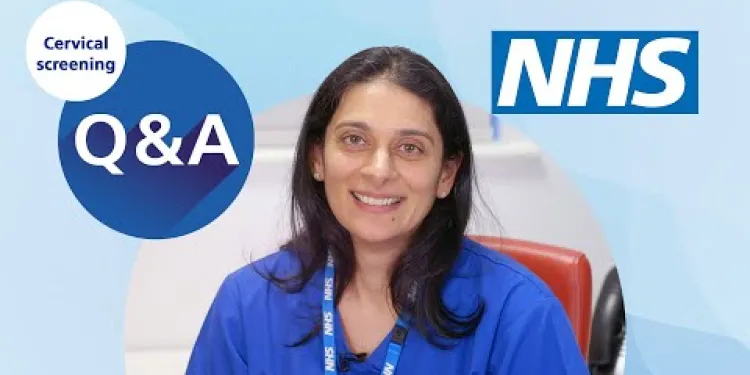
Cervical screening: Q&A | NHS
Relevance: 100%
-
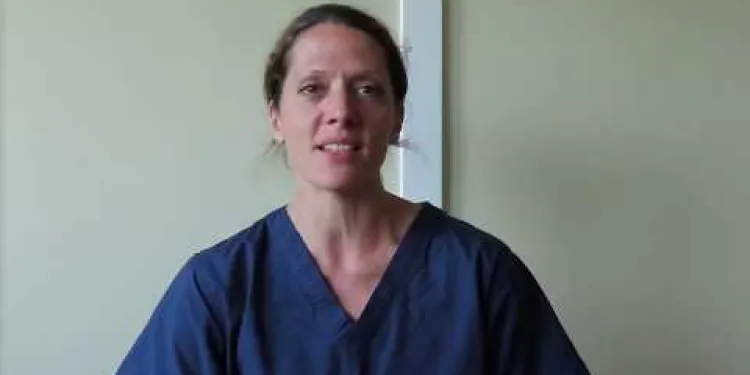
The NHS is #StillHereToHelp with cervical screening
Relevance: 96%
-
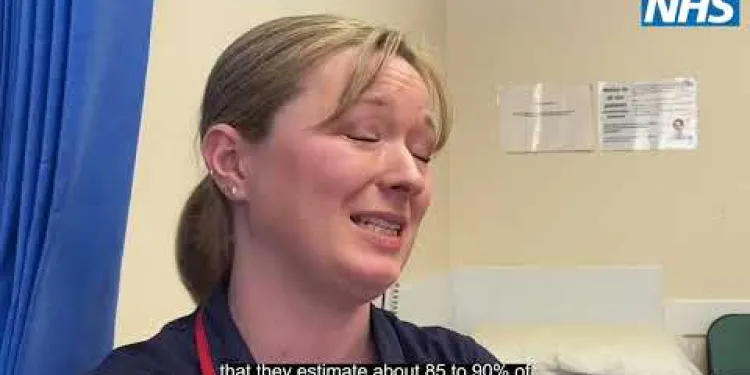
What is cervical screening (smear test)?
Relevance: 93%
-
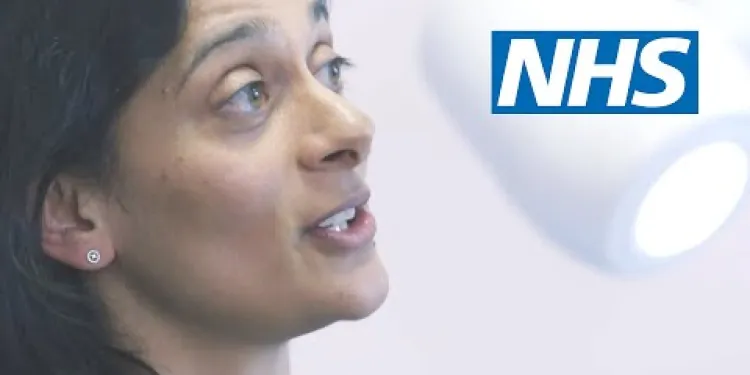
Cervical screening: what to expect | NHS
Relevance: 92%
-
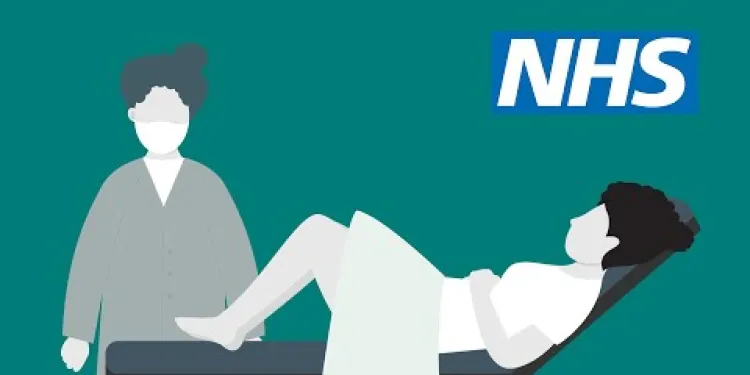
Cervical screening: how it's done | NHS
Relevance: 92%
-
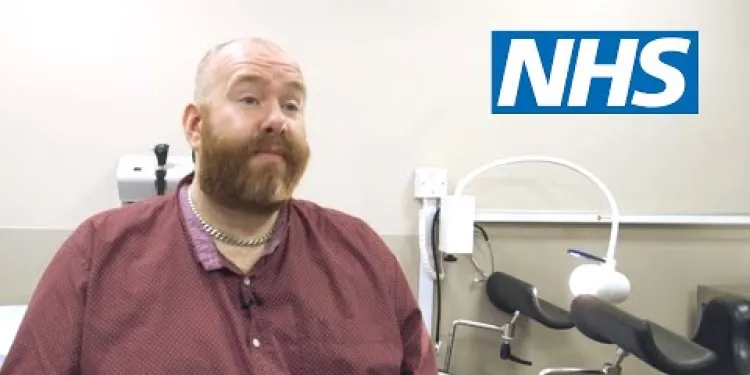
Cervical screening for transgender men | NHS
Relevance: 92%
-
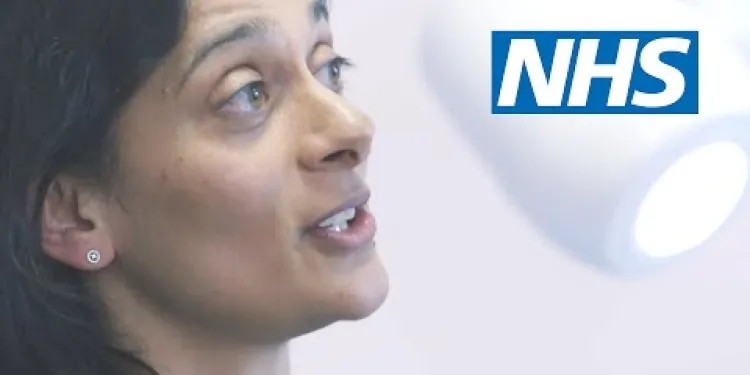
Cervical screening: what to expect | NHS
Relevance: 91%
-

NHSGGC - Cervical Cancer Screening - English
Relevance: 91%
-

When should cervical cancer screening begin?
Relevance: 89%
-
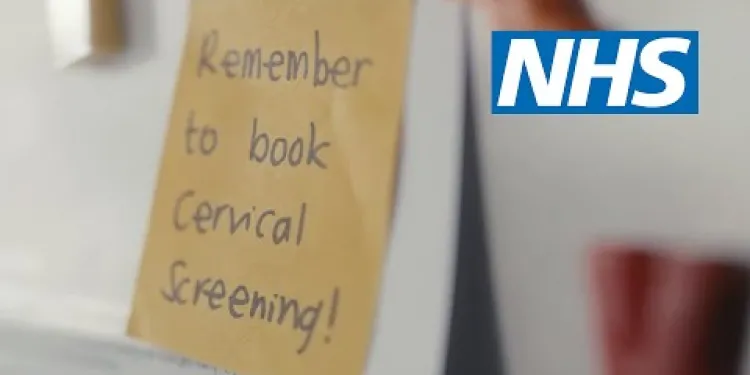
Don’t ignore your cervical screening invite | NHS
Relevance: 86%
-

Cervical screening (smear test) – what’s it all about?
Relevance: 86%
-

Accessing cervical screening with the right support for people with a learning disability
Relevance: 82%
-

Cervical screening for women who have experienced sexual assault | NHS
Relevance: 81%
-
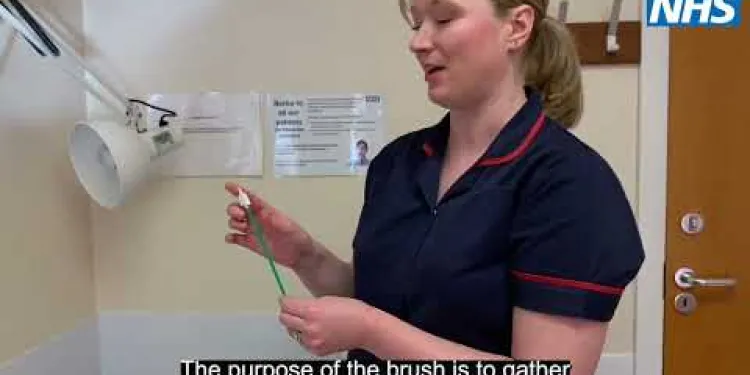
Booked in for your smear test (cervical screening) and not sure what to expect?
Relevance: 78%
-

What is the link between HPV and cervical cancer?
Relevance: 70%
-
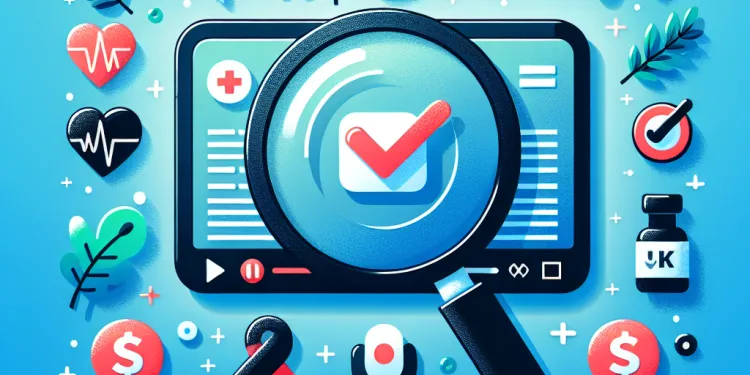
Health Screenings You Should Know About
Relevance: 59%
-

What kinds of cancer screening are available?
Relevance: 58%
-

What is cancer screening?
Relevance: 56%
-
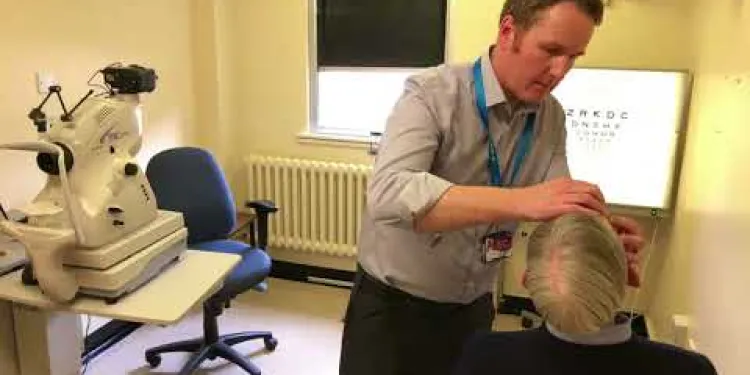
Derbyshire Diabetic Eye Screening - Diabetic Eye Screening
Relevance: 40%
-
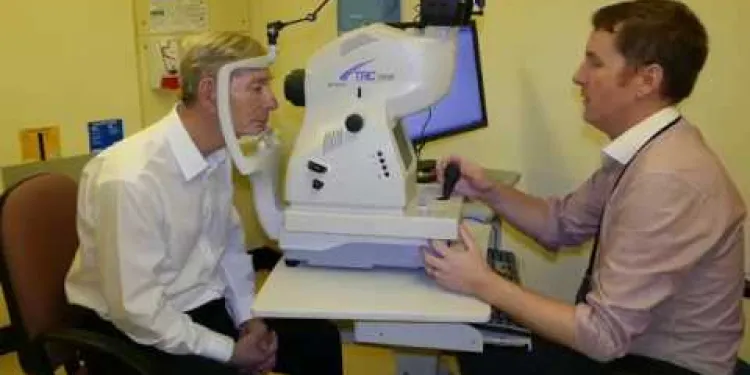
Derbyshire Diabetic Eye Screening - Your Screening Appointment
Relevance: 40%
-

Is HPV testing available?
Relevance: 39%
-

Diabetes Eye Screening
Relevance: 39%
-

AI Breast Cancer Screening in the UK
Relevance: 39%
-
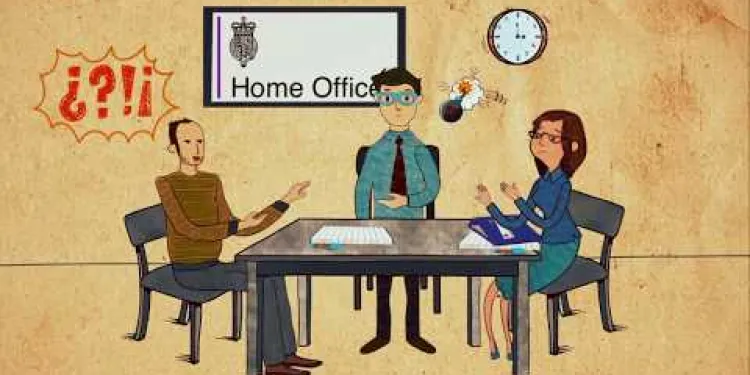
The asylum screening interview
Relevance: 39%
-

NHS breast cancer screening
Relevance: 38%
-

Are there eco-friendly mosquito screen options?
Relevance: 38%
-

Are mosquito window screens effective in the UK?
Relevance: 38%
-

Are Mosquito window screens effective?
Relevance: 38%
-

Are there retractable mosquito screens available?
Relevance: 38%
-

Is screening painful or risky for my child?
Relevance: 37%
-
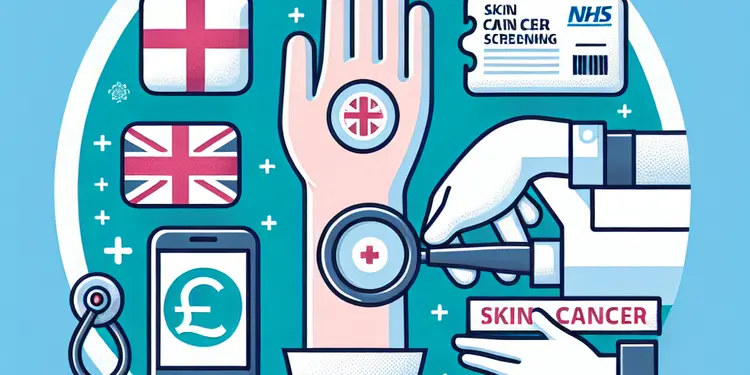
What is a skin cancer screening?
Relevance: 37%
-

How do I maintain my mosquito screens?
Relevance: 37%
-

Can pets damage mosquito screens?
Relevance: 36%
-

Do mosquito screens add value to my home?
Relevance: 36%
-

Can HPV lead to cancer?
Relevance: 36%
-

Is genetic screening available for cancer risk?
Relevance: 36%
-

Are mosquito screens effective against midges?
Relevance: 36%
-

AAA (Abdominal aortic aneurysm) screening
Relevance: 36%
-

What are the limitations of type 1 diabetes screening?
Relevance: 36%
-

Do mosquito screens provide insulation benefits?
Relevance: 36%
Cervical Screening: Q&A | NHS
What is Cervical Screening?
Cervical screening, also known as a smear test, is a method of preventing cervical cancer by detecting and treating early abnormalities in the cervix. In the UK, the NHS cervical screening program invites women aged 25 to 64 for regular screenings to ensure that any precancerous changes are spotted and managed early.
Why is Cervical Screening Important?
Cervical screening saves lives by identifying potentially harmful changes in cervical cells before they develop into cancer. It is estimated that early detection and treatment through screening prevents around 75% of cervical cancers.
When Should You Get Screened?
The NHS recommends the following screening schedule:
- Aged 25-49: Every 3 years
- Aged 50-64: Every 5 years
What Happens During the Cervical Screening Test?
During the test, a small sample of cells from your cervix is collected using a soft brush. This sample is then sent to a laboratory to check for abnormalities, including the presence of Human Papillomavirus (HPV), which can cause cervical cell changes that might lead to cancer if untreated.
Is the Test Painful?
While some women may find the cervical screening test uncomfortable, it should not be painful. Any discomfort typically only lasts for a very short time, and the benefits of the test far outweigh any slight inconvenience.
How Will I Get My Results?
Your results will be sent to you by letter within a few weeks. The letter will explain what was found and indicate whether any further tests or treatments are necessary. Around 90% of women have a normal result, but if an abnormality is detected, appropriate follow-up care will be arranged.
Where Can I Get More Information?
For more information about cervical screening, you can visit the NHS Cervical Screening webpage, speak with your GP, or contact local health services. Always ensure to keep your contact details up-to-date with your GP practice so you don't miss any important screening invitations.
Cervical Screening: Q&A | NHS
What is Cervical Screening?
Cervical screening is also called a smear test. It helps stop cervical cancer by finding and treating changes in the cervix early. In the UK, women aged 25 to 64 are invited for regular checks to catch changes early.
Why is Cervical Screening Important?
Cervical screening saves lives. It finds changes in cervical cells before they turn into cancer. Early checks and treatments stop about 75% of cervical cancers.
When Should You Get Screened?
The NHS says:
- Aged 25-49: Every 3 years
- Aged 50-64: Every 5 years
What Happens During the Cervical Screening Test?
In the test, a soft brush takes a small sample of cells from your cervix. This sample is checked in a lab for changes, like HPV, which can lead to cancer if not treated.
Is the Test Painful?
The screening might feel a bit uncomfortable, but it should not hurt. Any discomfort is quick, and the test is very important for your health.
How Will I Get My Results?
You will get a letter with your results in a few weeks. The letter will say what was found and if more tests are needed. Most women have normal results, but if something is wrong, you will get the care you need.
Where Can I Get More Information?
For more about cervical screening, you can visit the NHS Cervical Screening webpage, talk to your GP, or contact local health services. Keep your contact details up-to-date with your GP so you don’t miss any important invitations.
Frequently Asked Questions
What is cervical screening?
Cervical screening (a smear test) checks the health of your cervix. It's a test to help prevent cancer.
Who is cervical screening for?
Cervical screening is for all women and people with a cervix aged 25 to 64.
How often should I have cervical screening?
If you are aged 25 to 49, you should have a test every 3 years. For those aged 50 to 64, it should be every 5 years.
What happens during cervical screening?
A small sample of cells is taken from your cervix using a soft brush. The sample is then tested for HPV and abnormal cells.
Is cervical screening mandatory?
No, cervical screening is not mandatory, but it is highly recommended.
Does cervical screening test for cancer?
Cervical screening is not a test for cancer; it checks for abnormal cells that could develop into cancer.
What is HPV and why is it important in cervical screening?
HPV (human papillomavirus) can cause abnormal cell changes in the cervix. Cervical screening checks for high-risk types of HPV.
Will the cervical screening test hurt?
Cervical screening can be uncomfortable but should not be painful. It's a quick procedure, usually lasting less than 5 minutes.
How will I get my results?
You will receive your results by letter within 2 weeks.
What do the results mean?
Results will indicate whether HPV was found and if so, whether there were any abnormal cell changes.
What if I have abnormal results?
If you have abnormal results, you may need further testing or treatment to remove abnormal cells and prevent them from becoming cancerous.
Can I have cervical screening if I'm pregnant?
It's usually best to delay screening until at least 12 weeks after you've had your baby unless you have recently missed a screening or had an abnormal result.
Can I have cervical screening during my period?
It's best to rearrange your appointment if you're having a period as it can make the test less accurate.
Are there risks associated with cervical screening?
The risks are very low. However, there can be false positives or negatives, which is why regular screening is important.
How can I make an appointment for cervical screening?
You can make an appointment at your GP surgery or local sexual health clinic.
What is cervical screening?
Cervical screening is a health test for women.
This test checks the cervix. The cervix is inside a woman's body.
The test looks for changes in cervical cells. This can help stop cancer.
It is important to have this test to stay healthy.
If you feel worried, talk to a nurse or doctor.
They can help answer your questions.
You can use a calendar to remember your test dates.
Cervical screening, also called a smear test, checks if your cervix is healthy. This test helps stop cancer from starting.
Who should have a cervical screening?
Cervical screening is for people with a cervix. This usually means women and some transgender people.
If you are over 25 years old, you may need a cervical screening test. People up to 64 years old are usually invited for regular checks.
It helps to keep you healthy by checking for changes in your cervix.
To understand more, ask a nurse or doctor. They can help explain.
Cervical screening is for all women and people with a cervix who are 25 to 64 years old.
How often should I go for a cervical screening test?
If you are between 25 and 49 years old, you need to have a test every 3 years. If you are between 50 and 64 years old, you should have a test every 5 years.
What happens during cervical screening?
Cervical screening is a test to keep you healthy. It checks for changes in your body that could lead to cancer.
Here’s what happens:
- You go to a clinic or doctor's office.
- A nurse gently puts a small brush inside you to collect some cells. It might feel a bit uncomfortable, but it shouldn’t hurt.
- The nurse sends the cells to a lab to check for changes.
- If there are changes, the doctor will talk to you about the next steps.
Bring a friend if you feel nervous. Talking to someone you trust can also help.
A soft brush is used to take a tiny piece of cells from your cervix. Then, the cells are tested to check for HPV and unusual cells.
Do I have to go for cervical screening?
No, you do not have to go if you do not want to. It is your choice.
Cervical screening is a test to help keep you healthy. It can find problems early so doctors can help you.
It is good to talk with a doctor or nurse if you have questions.
You can ask a friend or family member to go with you for support.
There are videos online that explain more about cervical screening. These might help you understand.
No, you do not have to get a cervical screening, but it is a really good idea to do so.
Does the cervical screening test check for cancer?
The cervical screening test does not look for cancer. It checks for changes in the cervix that could turn into cancer.
Here is what the screening does:
- It looks for a virus called HPV. This virus can make the cells in your cervix change.
- If there are changes, doctors can help before it becomes cancer.
Useful tips:
- Ask your doctor if you have questions about the screening.
- You can take a friend with you to the appointment if it helps you feel better.
- Writing down questions before the appointment can help you remember what to ask.
Cervical screening is not a test to find cancer. It looks for changes in cells that might turn into cancer later.
What is HPV and why does it matter for checking the cervix?
HPV is a virus. It is short for Human Papillomavirus. Many people can get it. It can sometimes cause problems. It is very small, so you cannot see it.
Checking the cervix means looking at the lower part of a woman's womb. Doctors check cervix cells to make sure they are healthy.
HPV is important because it can cause some cells to change. This can make them not healthy.
Doctors check for HPV to keep the cervix healthy. It helps catch problems early.
Some supportive tools you can use are:
- Pictures and diagrams to show what cervix and HPV are.
- Ask someone you trust to explain it in simple words if you have questions.
HPV is a virus. This virus can make the cells in the cervix look different. A cervical screening test looks for a bad type of HPV.
Does the cervical screening test cause pain?
The cervical screening test might feel a little uncomfortable, but it should not hurt. Everyone feels things differently, so some people might feel more than others. It helps to relax and take deep breaths.
If you are worried or feel pain, you can tell the nurse or doctor. They are there to help you feel okay.
Here are some tips to feel more comfortable:
- Relax your muscles as much as you can.
- Breathe slowly and deeply.
- Ask the nurse or doctor to explain what they are doing.
Getting your cervix checked can feel a bit uncomfortable, but it should not hurt. It is a quick test and usually takes less than 5 minutes.
How will I get my results?
You will get your results by:
- Getting a letter in the mail.
- Checking online on the website.
- Getting a text or call on your phone.
If you need help, you can:
- Ask a friend or family member to help you.
- Use a computer with big text.
- Use text-to-speech tools to read the information out loud.
You will get your results in the mail in 2 weeks.
What do the results mean?
This tells you what the numbers or answers show. It helps you understand if things are good or bad. You can ask someone to help you read it. You can also use a ruler or your finger to point to each word as you read. This can make it easier to follow the line.
The results will show if HPV is there. They will also show if there are any changes in the cells that might not be normal.
What if my test results are not normal?
If the doctor says your test results are not normal, do not worry. This means they will check more closely. It might mean you need more tests or medicine. Ask the doctor to explain things in a simple way.
Here are some helpful tips:
- Write down your questions before you see the doctor.
- Bring a friend or family member with you to the doctor.
- Ask the doctor to use simple words and to explain slowly.
- Write down what the doctor says so you can remember.
These tips can help you understand and feel better about your test results.
If your test shows something is not normal, you might need more tests or treatment. This can help find and remove any bad cells. This stops them from turning into cancer.
Using pictures and videos can help you understand better.
Can I get a cervical screening if I am pregnant?
If you are pregnant, you may still be able to have a cervical screening. It is important to talk to your doctor or nurse about it. They will tell you what is best for you and your baby.
Here are some things you can do:
- Ask your doctor if you need a cervical screening during your pregnancy.
- If you do not need one now, you can have it after your baby is born.
- Use reminders or calendars to help you remember your appointments.
Remember, it is okay to ask questions if you are unsure!
It is often best to wait 12 weeks after having your baby before getting a health check, unless you missed a check up before or had unusual results.
Can I get a cervical screening when I have my period?
You might have a cervical screening when you are on your period. But, it is better if you do it at a different time.
Your period can make it harder for the doctor or nurse to see clearly. This might mean you need to go back another time.
Try to plan your screening for when you are not on your period. This will make things easier for you and the nurse or doctor.
If you have any concerns, talk to your nurse or doctor. They can help you figure out the best time for you.
Using a calendar or a period tracking app can help you know when your period is coming. This can make planning easier.
If you have your period, it's a good idea to change your appointment. This is because the test might not work as well.
Is cervical screening safe?
The chances of a problem are very small. But sometimes, the test might say someone is sick when they are not. Or, it might miss a problem. This is why it is important to have tests regularly.
How do I book a test to check my cervix?
You can call your doctor to book the test.
Your nurse or doctor will do the test for you.
You might get a letter to remind you to book the test.
Ask someone you trust to help you book if you find it hard.
You can book a time to see a doctor or nurse at your local doctor’s office or a nearby clinic that helps with sexual health.
Useful Links
This website offers general information and is not a substitute for professional advice.
Always seek guidance from qualified professionals.
If you have any medical concerns or need urgent help, contact a healthcare professional or emergency services immediately.
- Ergsy carfully checks the information in the videos we provide here.
- Videos shown by Youtube after a video has completed, have NOT been reviewed by ERGSY.
- To view, click the arrow in centre of video.
- Most of the videos you find here will have subtitles and/or closed captions available.
- You may need to turn these on, and choose your preferred language.
- Go to the video you'd like to watch.
- If closed captions (CC) are available, settings will be visible on the bottom right of the video player.
- To turn on Captions, click settings .
- To turn off Captions, click settings again.
More Items From Ergsy search
-

Cervical screening: Q&A | NHS
Relevance: 100%
-

The NHS is #StillHereToHelp with cervical screening
Relevance: 96%
-

What is cervical screening (smear test)?
Relevance: 93%
-

Cervical screening: what to expect | NHS
Relevance: 92%
-

Cervical screening: how it's done | NHS
Relevance: 92%
-

Cervical screening for transgender men | NHS
Relevance: 92%
-

Cervical screening: what to expect | NHS
Relevance: 91%
-

NHSGGC - Cervical Cancer Screening - English
Relevance: 91%
-

When should cervical cancer screening begin?
Relevance: 89%
-

Don’t ignore your cervical screening invite | NHS
Relevance: 86%
-

Cervical screening (smear test) – what’s it all about?
Relevance: 86%
-

Accessing cervical screening with the right support for people with a learning disability
Relevance: 82%
-

Cervical screening for women who have experienced sexual assault | NHS
Relevance: 81%
-

Booked in for your smear test (cervical screening) and not sure what to expect?
Relevance: 78%
-

What is the link between HPV and cervical cancer?
Relevance: 70%
-

Health Screenings You Should Know About
Relevance: 59%
-

What kinds of cancer screening are available?
Relevance: 58%
-

What is cancer screening?
Relevance: 56%
-

Derbyshire Diabetic Eye Screening - Diabetic Eye Screening
Relevance: 40%
-

Derbyshire Diabetic Eye Screening - Your Screening Appointment
Relevance: 40%
-

Is HPV testing available?
Relevance: 39%
-

Diabetes Eye Screening
Relevance: 39%
-

AI Breast Cancer Screening in the UK
Relevance: 39%
-

The asylum screening interview
Relevance: 39%
-

NHS breast cancer screening
Relevance: 38%
-

Are there eco-friendly mosquito screen options?
Relevance: 38%
-

Are mosquito window screens effective in the UK?
Relevance: 38%
-

Are Mosquito window screens effective?
Relevance: 38%
-

Are there retractable mosquito screens available?
Relevance: 38%
-

Is screening painful or risky for my child?
Relevance: 37%
-

What is a skin cancer screening?
Relevance: 37%
-

How do I maintain my mosquito screens?
Relevance: 37%
-

Can pets damage mosquito screens?
Relevance: 36%
-

Do mosquito screens add value to my home?
Relevance: 36%
-

Can HPV lead to cancer?
Relevance: 36%
-

Is genetic screening available for cancer risk?
Relevance: 36%
-

Are mosquito screens effective against midges?
Relevance: 36%
-

AAA (Abdominal aortic aneurysm) screening
Relevance: 36%
-

What are the limitations of type 1 diabetes screening?
Relevance: 36%
-

Do mosquito screens provide insulation benefits?
Relevance: 36%


